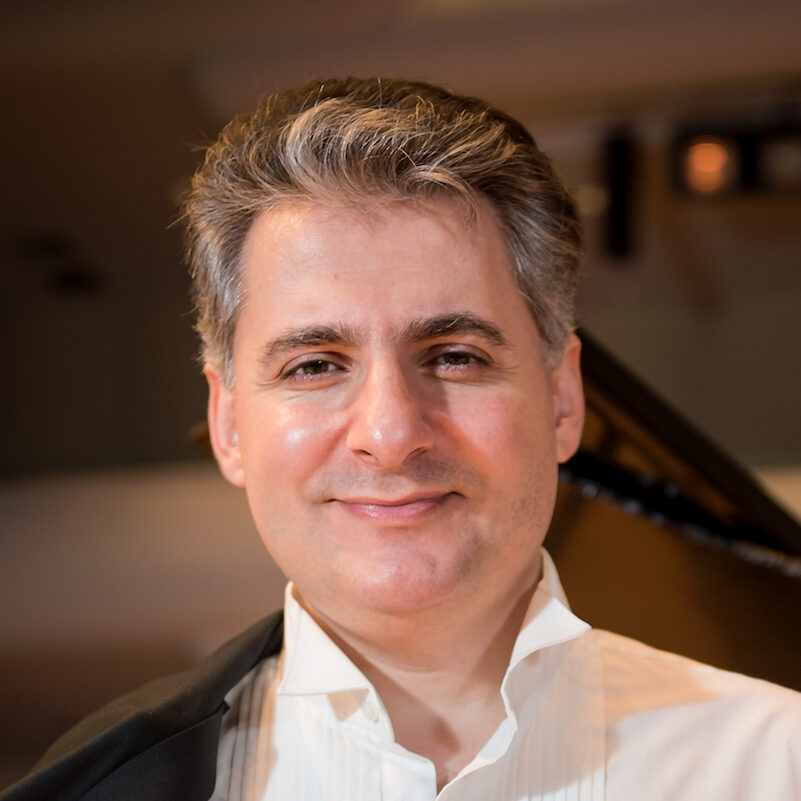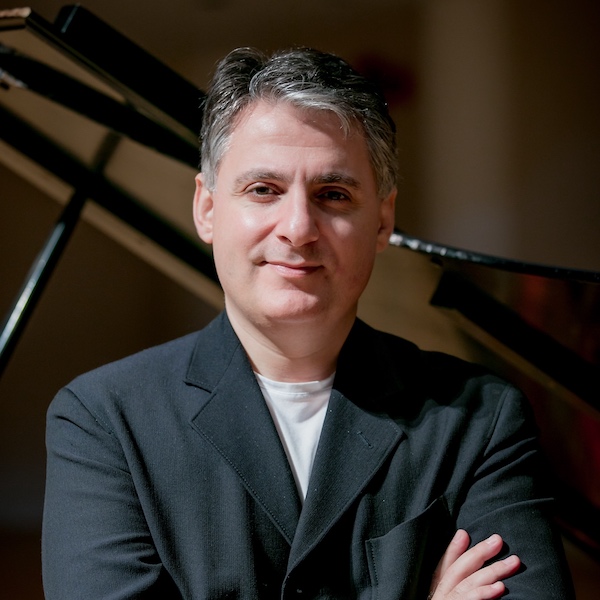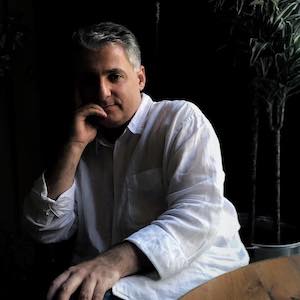Teaching
Successful teachers love their subject matter, their students, and the process of learning. Certainly teaching and performing complement each other; I am grateful I get to do both. As Marcus Cicero once said: “If you want to learn, you must teach.”
Teaching
Successful teachers love their subject matter, their students, and the process of learning. Certainly teaching and performing complement each other; I am grateful I get to do both. As Marcus Cicero once said: “If you want to learn, you must teach.”
Sign me up for lessons!
Yamaha Artist Edisher Savitski to Conduct ‘Remote’ Piano Master Class with UA Students via Disklavier Technology
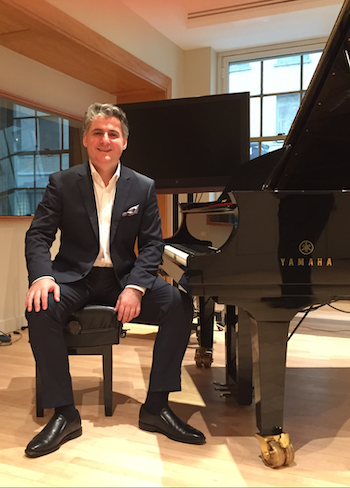
Dr. Savitski will perform in New York City for music students assembled at the University of Alabama in Tuscaloosa – more than 1,000 miles away.
Edisher Savitski, assistant professor of piano in the School of Music at the University of Alabama, will present a masterclass on April 26, 2017 using Remote Lesson technology developed by Yamaha, the world’s largest musical instrument manufacturer. Dr. Savitski will perform in New York City for music students assembled at the University of Alabama in Tuscaloosa – more than 1,000 miles away.
The event will represent the first time students at the university’s School of Music, one of the finest in the country, get to experience this groundbreaking, distance-learning technology that enables top artists and educators to instruct students remotely, thanks to internet- connected Disklavier reproducing pianos located miles apart, in different states or even different countries.
On short-term loan to the UA School of Music, the Yamaha Disklavier is a unique instrument capable of transmitting highly nuanced performance data – the actual key strokes and subtle gradations of pedal movement – between similarly equipped instruments over the internet. As Dr. Savitski performs on a DCFX Disklavier PRO concert grand piano in New York City, a similarly equipped instrument on stage at the school’s Moody Concert Hall will recreate, in real time, his exact performance – the piano’s keys and pedals moving up and down to capture the subtlest nuance. At the same time, students will be able to watch Dr. Savitski’s live performance on a big screen TV, with the video perfectly in sync with the piano on stage.
Following the performance, Dr. Savitski will then conduct a remote master class with a piano student. Freely offering his words of wisdom over video chat, Dr. Savitski will play back and forth with the student, in real time, making it seem as if the instructor and student are sitting on the same piano bench.
Dr. Savitski was the First pianist to perform remotely using this technology. He played from his home in South Bend, Indiana on this type of instrument while connected to another located in New York City.
Dr. Edisher Savitski, who holds DMA degree from Michigan State University, has enjoyed critical acclaim throughout his career. He has appeared as a soloist with the Mariinsky Theatre Orchestra, Minnesota Orchestra, Utah Symphony and Pacific Symphony, among others, and has been performing at prestigious venues worldwide including Carnegie Zankel Hall and Carnegie Weill Hall, New York; Wigmore Hall, London; Great Hall of Mozarteum, Salzburg, Austria; and Teatro alla Scala, Milan, Italy.
He also holds the distinction of being the First prize recipient of the 2006 Piano-e-Competition, which uses Disklavier pianos exclusively to enable contestants to audition remotely.
“It is always my goal to treat every person in my studio as an individual worthy of unqualified respect and my best effort, no matter what the student’s background or career path may be.”
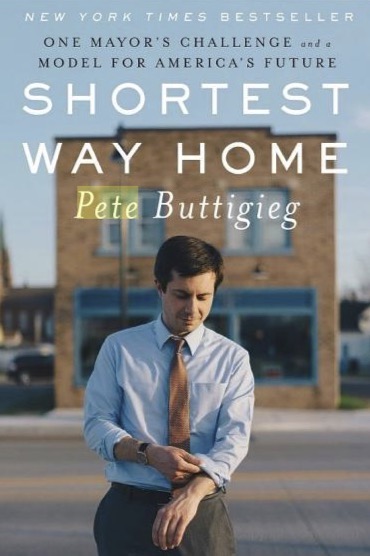
Shortest Way Home: One Mayor’s Challenge and a Model for America’s Future
by PETE BUTTIGIEG
“…. He arranged a course of (piano) lessons with Edisher Savitski, one of Toradze’s star graduate students. A genial man with a cloud of wavy dark hair, Edisher would spend and hour with me every week, patiently coaching me into becoming a concert pianist – with not quite enough time.”
“As I got to know Edisher I learned more of his history. He had come from the Republic of Georgia at Toradze’s invitation, with no money and no English. He was already emerging as a world-class pianist – he once won a grand piano at an international competition – but had to start from zero financially. While enrolled at IUSB, he got a job making submarine sandwiches at a Blimpie in a strip mall on South Bend Avenue – he described to me once covering a sandwich in garlic powder after misunderstanding a customer’s emphatic and repeated demands to have no garlic on his sandwich. He’s since become a professor, a fitting outcome for a classically American story of opportunity, but when I think about his journey I can’t get past the thought that it was a crime to allow such talented fingers so near to a meat slicer.
Each week for one hour, he would sit in my living room and hone my technique. I’d play a passage for him, and he would lean back thoughtfully, bring his hands together, and say, “Okay, lots of beautiful things. Now…” And here he’d begin deconstructing my performance and putting it back together. He would say things that sounded strange at first, like, “Don’t play the notes – just play the music.” Explaining how to make one passage twinkle, he described the first time he saw an American Disney cartoon and asked me to evoke its characters. It seemed cryptic at first but began to make sense over time. After a couple of months I was dreaming Rhapsody in Blue.I could close my eyes, start at any point, and play the rest of the piece in my mind.”
“In working with my students at the piano, I try to open their ears to imaginative sounds and interpretive ideas that compel the audience to listen. I am constantly working on my own performance and hope that I can provide a musical model that inspires students to play even beyond their own expectations. I strive to give students the tools to communicate their own ideas about music while becoming critical thinkers. Finally, I encourage them to become well-educated citizens who are curious lifelong learners, not just music students.”
Testimonials
What Students Are Saying
“Dr. Savitski is an incredible communicator and conveys his thougths and instructions very well. His feedback on playing was always constructive. He always provided a solution to any problems that I had and was very undarstanding. “
“Dr. Savitski is very helpful in his teaching style, giving someone multiple waus to view any corrections that he would like to be made. He is quick to show examples of what he wants, and will work with you until you are closer to achieving those goals.”
“Dr. Savitski’s is able to diagnose problems quickly and give an immediate cure for it. His solutions are easy to understand and apply to the music. He is an excellent teacher and has improved my playing by 100% and has made me comfortable playing. “
Start Learning today!
Edisher Savitski
Designed by MusicOnTheGo.org
Connect
Designed by MusicOnTheGo.org
